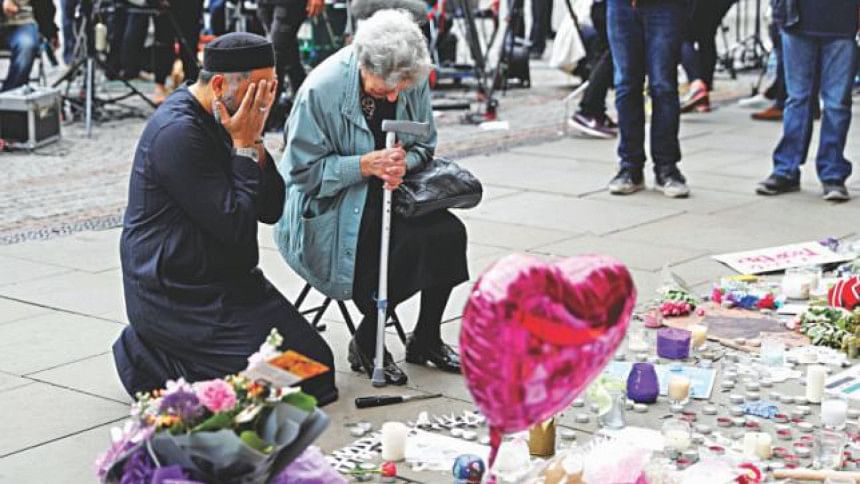The strategy of solidarity

After the Man-chester carnage, there should no longer be any sense of disbelief at the invidious lengths to which terrorists can go to make their presence felt. Especially when they are weak, cornered and desperate. First you have a flashback to put the latest incident in perspective; then you scrutinise if it was preventable and come up with solutions for the future.
There have been three terror attacks in Britain over the last decade. The first was the bombing in a section of underground railway on July 7, 2005. This took a toll of 52 people. Then followed a long period of calm as a mark of British counter-terrorism success up until March this year. At that point, Westminster Bridge bloodshed took place. A sense of vulnerability crept in; Britain was put on high alert. But in spite of that, last Monday night, a suicide bomber unleashed a horrendous massacre on mostly teenagers at the end of a concert at the heart of Manchester. Not since 2005 have there been such heavy casualties—22 killed and 59 injured of whom 20 are in a critical state.
Was it preventable? Well, first of all, it was the softest of targets that a terrorist mentor or operative could pick. Secondly, according to some eyewitness accounts, security checks at the gate were lax; surely not the copy-book type they had expected. It appears that the lessons have sunk in. The British prime minister has raised the terror threat from 'severe' to 'critical' with the military being deployed to guard all key installations leaving the police to intense and extensive patrolling duties.
It is worth noting how promptly the British police have identified the attacker. His name is Salman Abedi, a 22-year-old British-born Muslim of Libyan origin, who had just returned from a visit to Libya. The British government is evidently acting on the plausible assumption that a wider network may have been involved and that a recurrence can't be ruled out.
In parallel runs a pragmatic view cognisant of certain limitations before adopting a fail-safe plan of action in terms of counter-terrorism. First of all, there's no way to deter a suicide bomber wired with explosives except for stopping him by timely intelligence tracking. Secondly, and importantly as it happens now, 1,000 Muslims have been put under surveillance in Britain. The list includes 400 returnees from Syria and 600 who have been stopped from travelling to Syria and Iraq.
Is it humanly possible or even mechanically feasible to keep 1,000 potential suspects under radar on a 24/7 basis? Then add to the list sleeper cells, sympathisers and lone wolves—that's a daunting task.
Thus, the conventional us-vs.-them clinical approach to tackling terrorism needs to be rethought and revised to ensure right amounts of community involvement against terrorism. To make sure that there is community-wide participation, the British government and civil society will have to discourage any unwitting profiling or persecution of Muslims.
In their weak and desperate situation, ISIS is courting persecution of the Muslims overseas to alienate them from their host countries. Governments in the West would be falling in the trap of driving a wedge in the community if they are to treat the Muslims differently.
The other robust potential for community-wide understanding lies in inter-faith dialogue and communication. President Trump's visits to Riyadh, Jerusalem and Vatican City have been regarded as symbolic gestures to bring to bear the Abrahamic religions—Islam, Christianity and Judaism—on the issue of peace and harmony. The optimism though at any rate looks misplaced because Iran and Russia have been kept out of the equation.
The writer is a commentator on current affairs and former Associate Editor, The Daily Star.
E-mail: [email protected]

 For all latest news, follow The Daily Star's Google News channel.
For all latest news, follow The Daily Star's Google News channel. 



Comments